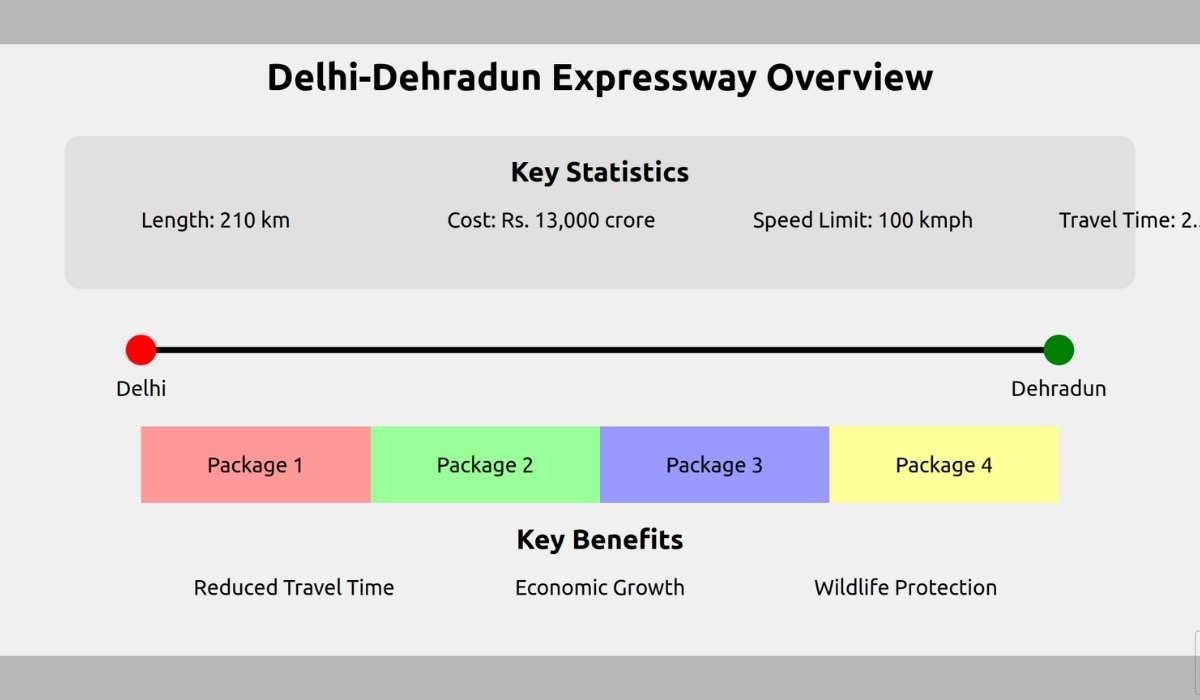Determining your budget is a crucial first step when planning to purchase a home in India. It involves assessing your income, expenses, existing debts, and savings to arrive at a realistic figure you can afford to spend on a property. By setting a well-defined budget, you can streamline your home search and avoid overstretching your finances.
When it comes to buying a home in India, one of the most critical aspects is determining your budget. How to Determine Your Budget to Purchase a Home in India is a question that many prospective homebuyers grapple with. A well-defined budget not only helps you narrow down your property search but also ensures that you don’t overextend yourself financially.
The first step in determining your budget is to assess your income. This includes your monthly salary, any additional sources of income, such as rental income or investments, and the income of your spouse or partner if you plan to co-purchase the property. It’s essential to have a clear understanding of your net monthly income after accounting for taxes and other deductions.
Next, you need to evaluate your monthly expenses. These include fixed expenses like rent, utility bills, insurance premiums, loan repayments, and other recurring costs. Additionally, factor in variable expenses such as groceries, transportation, entertainment, and miscellaneous expenses. Subtracting your total monthly expenses from your net income will give you an idea of how much you can potentially allocate towards a home loan.
Let’s consider an example of a couple, Amit and Priya, with a combined monthly income of ₹1,20,000. Their monthly expenses, including rent, utilities, and other living costs, amount to ₹50,000. After deducting their expenses, they have ₹70,000 left, which they can potentially use to service a home loan.
Another crucial factor to consider is your existing debts. If you have outstanding loans, credit card balances, or other debts, it’s essential to factor in those repayments when calculating your budget. Ideally, your total monthly debt obligations, including the potential home loan EMI, should not exceed 40-50% of your net monthly income.
Unlock Your Dream Home Today!
Get personalized real estate insights delivered straight to your inbox.
Your savings and down payment capacity also play a significant role in determining your budget. Most lenders in India require a down payment of at least 20% of the property’s value. The higher your down payment, the lower your home loan amount and subsequent EMIs will be, making it easier to manage your monthly expenses.Continuing with the example of Amit and Priya, let’s assume they have savings of ₹15 lakhs. If they wish to purchase a property worth ₹75 lakhs, they can use their savings as a 20% down payment (₹15 lakhs), reducing their home loan requirement to ₹60 lakhs.
Lastly, consider the location, size, and amenities you desire in your dream home. Properties in prime locations or those with better amenities and larger sizes tend to be more expensive. Balancing your preferences with your budget is crucial to ensure you don’t overspend.
FAQs:
How much of my monthly income should go towards a home loan EMI?
Most financial experts recommend that your home loan EMI should not exceed 30-40% of your net monthly income to maintain a comfortable lifestyle.
Can I use my provident fund (PF) or gratuity for a down payment?
Yes, you can use your PF or gratuity as a source of funds for the down payment on a home purchase. However, it’s essential to consider the tax implications and plan accordingly.
Should I factor in potential rental income when determining my budget?
If you plan to rent out a portion of the property, you can consider the potential rental income when calculating your budget. However, it’s advisable to be conservative in your estimates and not rely solely on rental income to service the home loan.
Can I take a joint home loan with a family member or friend?
Yes, you can opt for a joint home loan with a family member or friend. This can increase your borrowing capacity and help you afford a more expensive property. However, it’s essential to have a clear understanding of the legal and financial implications of a joint home loan.
How often should I review and adjust my home-buying budget?
It’s recommended to review and adjust your home-buying budget periodically, especially if there are significant changes in your income, expenses, or financial circumstances. Regular reviews can help you stay on track and make informed decisions.
By carefully considering your income, expenses, debts, savings, and preferences, you can determine a realistic budget for purchasing a home in India. This approach not only helps you find a property that meets your needs but also ensures long-term financial stability.
You should include your monthly salary, any additional income sources such as rental income or investments, and your spouse or partner's income if co-purchasing.
Factor in fixed expenses like rent, utility bills, insurance premiums, and loan repayments, as well as variable expenses such as groceries, transportation, and entertainment.
Most experts recommend that your home loan EMI should not exceed 30-40% of your net monthly income to maintain a comfortable lifestyle.
Yes, if you plan to rent out a portion of the property, you can consider potential rental income, but it's wise to be conservative in your estimates.
Your total monthly debt obligations, including potential home loan EMIs, should ideally not exceed 40-50% of your net monthly income to ensure financial stability.
Most lenders require a down payment of at least 20% of the property's value; a higher down payment reduces your home loan amount and subsequent EMIs.
Yes, you can use your PF or gratuity for the down payment, but consider the tax implications and plan accordingly.
Yes, you can opt for a joint home loan with a family member or friend, which can increase your borrowing capacity, but understand the legal and financial implications.
It's recommended to review and adjust your budget periodically, especially after significant changes in your income, expenses, or financial circumstances.
Consider the location, size, and amenities of the property, as these factors can significantly impact the price and should align with your budget.
Start by assessing your income, expenses, existing debts, and savings to arrive at a realistic figure you can afford to spend on a property.
Most financial experts recommend that your home loan EMI should not exceed 30-40% of your net monthly income to maintain a comfortable lifestyle.
Yes, if you plan to co-purchase the property, you can include your spouse or partner's income in your budget assessment.
Your total monthly debt obligations, including the potential home loan EMI, should ideally not exceed 40-50% of your net monthly income.
Yes, you can use your PF or gratuity as a source of funds for the down payment, but consider the tax implications and plan accordingly.
Yes, if you plan to rent out part of the property, you can factor in potential rental income, but it's wise to be conservative in your estimates.
Yes, you can opt for a joint home loan with a family member or friend, which can increase your borrowing capacity.
Most lenders in India require a down payment of at least 20% of the property's value, so aim to save accordingly.
It's recommended to review and adjust your budget periodically, especially if there are significant changes in your income or expenses.
Consider the location, size, and amenities of the property while balancing your preferences with your budget to avoid overspending.
Begin by assessing your income, including your monthly salary and any additional sources of income. Next, evaluate your monthly expenses, including fixed and variable costs, to understand how much you can allocate towards a home loan.
Most financial experts recommend that your home loan EMI should not exceed 30-40% of your net monthly income to maintain a comfortable lifestyle.
Yes, you can use your PF or gratuity as funds for the down payment on a home purchase. However, consider the tax implications and plan accordingly.
If you plan to rent out a portion of the property, you can consider potential rental income. However, it's advisable to be conservative in your estimates and not rely solely on rental income to service the home loan.
Yes, you can opt for a joint home loan with a family member or friend, which can increase your borrowing capacity. Ensure you understand the legal and financial implications of a joint home loan.
Most lenders in India require a down payment of at least 20% of the property's value. A higher down payment can reduce your home loan amount and subsequent EMIs.
It's recommended to review and adjust your home-buying budget periodically, especially after significant changes in your income, expenses, or financial circumstances.
Consider your income, expenses, existing debts, savings, and the desired location, size, and amenities of your future home.
By setting a well-defined budget based on your financial situation, you can streamline your home search and avoid overstretching your finances.
If you have existing debts, factor in those repayments when calculating your budget. Ideally, your total monthly debt obligations, including the potential home loan EMI, should not exceed 40-50% of your net monthly income.
DISCLAIMER
The information provided on this website is for general informational purposes only. While we strive to keep the content up-to-date and accurate, we make no representations or warranties of any kind, express or implied, about the completeness, accuracy, reliability, suitability, or availability of the information, products, services, or related graphics contained on this website.
In no event will we be liable for any loss or damage including without limitation, indirect or consequential loss or damage, or any loss or damage whatsoever arising from loss of data or profits arising out of, or in connection with, the use of this website.
Real Estate Investment Risks
Real estate investments involve significant risks and market volatility. Property values, rental rates, and market conditions can fluctuate. Past performance is not indicative of future results.
Before Making Real Estate Decisions
Before making any real estate decision, we strongly advise you to:
- Conduct thorough due diligence
- Consult with qualified legal, financial, and real estate professionals
- Carefully review all relevant documents and contracts
- Consider your personal financial situation and investment goals
This website does not provide legal, financial, or investment advice. All content is for informational purposes only and should not be construed as professional advice or recommendations.
By using this website, you acknowledge and agree to these terms. We reserve the right to modify this disclaimer at any time without notice.







